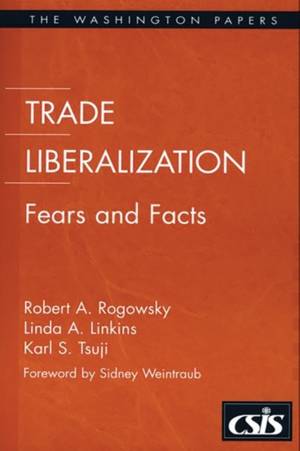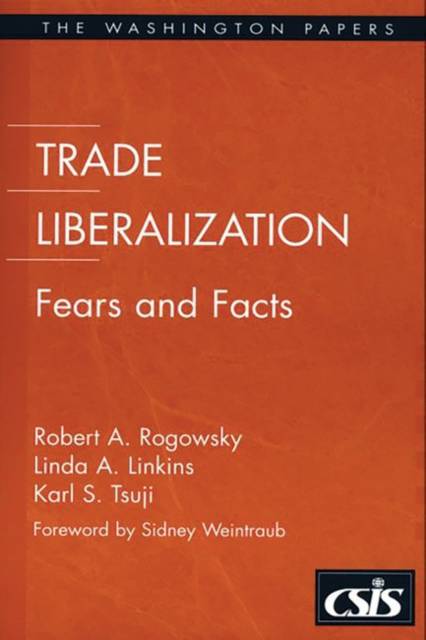
- Retrait gratuit dans votre magasin Club
- 7.000.000 titres dans notre catalogue
- Payer en toute sécurité
- Toujours un magasin près de chez vous
- Retrait gratuit dans votre magasin Club
- 7.000.0000 titres dans notre catalogue
- Payer en toute sécurité
- Toujours un magasin près de chez vous
81,45 €
+ 162 points
Format
Description
Examining the often-expressed concerns about trade liberalization, the authors assess both the facts and common perceptions underlying the issues. Research shows that some popular concerns about trade are factually based, but others are less well supported or arise from apparent misunderstandings of the way international markets work. This form of presentation both highlights the current divergence of views and demonstrates the extent to which either new research or better public dissemination of existing research might lead toward greater consensus.
The authors examine seven often-expressed concerns about trade liberalization to assess both the facts and common perceptions underlying the issues.- Trade's effect on manufacturing jobs
- Trade's effect on wage and income inequality
- Trade deficits
- U.S. economic exposure to foreign-market instability
- The threat to sovereignty
- Trade's effect on the environment
- Health and safety After briefly summarizing the concerns raised in each area, the authors review a large body of recent economic and legal literature. Plain statements by advocates of a particular position on an issue appear alongside discussion of more formal economic or legal analysis of the same issue. This form of presentation both highlights the current divergence of views and demonstrates the extent to which either new research or better public dissemination of existing research might lead toward greater consensus.
Spécifications
Parties prenantes
- Auteur(s) :
- Editeur:
Contenu
- Nombre de pages :
- 118
- Langue:
- Anglais
- Collection :
Caractéristiques
- EAN:
- 9780275974015
- Date de parution :
- 30-05-01
- Format:
- Livre relié
- Format numérique:
- Genaaid
- Dimensions :
- 161 mm x 243 mm
- Poids :
- 399 g

Les avis
Nous publions uniquement les avis qui respectent les conditions requises. Consultez nos conditions pour les avis.






